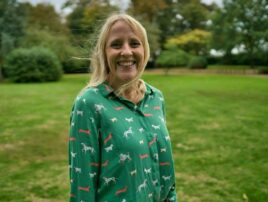
Monday 13th June 2022
Age Reversing Factor so astonishing study lead professor takes daily supplement himself
Louise Morse
Move over expensive face creams said to remove the signs of ageing. A team of researchers across four universities has dug deeper and found that eating sea squirts, also known as Ascidiacea, reversed some of the physical signs of ageing at neuronal level in mice. Sea squirts contain substances called plasmalogens, which are vital to our body processes. They are found all over our bodies, but particularly in the heart, brain, and immune cells. The amount in our bodies decreases with age, and the loss is also a characteristic of several neurodegenerative diseases, including Alzheimer’s and Parkinson’s disease. The effects of feeding plasmalogens to ageing mice was so astonishing that Professor Lei Fu, the corresponding author of the study now takes a plasmalogens supplement each day himself.
Sea squirts are a common dish in Korea and Japan. Adding a plasmalogens supplement to the diet of ageing mice had a profound effect on their learning abilities and physical symptoms. They were tested in a Morris water maze – a wall of water containing a platform that serves as a resting area. Generally, mice don’t like to swim, so over five days of training they remembered where the platform was and swam directly to it as soon as they were in the pool. Aged mice took longer to find the platform after the same amount of training. But when fed with plasmalogens the old mice performed like the young mice, finding the platform much quicker than the control group of old mice that had not been given the supplement.
Professor Fu said, “Our research suggests that plasmalogens may not just stop cognitive decline but may reverse cognitive impairments in the ageing brain. Additionally, aged mice fed with the plasmalogens grew new black hair that was thicker and glossier than old mice not fed the supplement.”
Researchers then examined the changes happening within the brain. They found that mice fed the plasmalogens supplement had a higher number and quality of synapses - the connections between neurons – than the old mice not given supplements. Synapses are a fundamental part of our neural networks and are crucial for learning and memory. In children synapses tend to be very plastic, but they decrease in number as we age and in neurodegenerative diseases resulting in cognitive impairments. The old mice fed with plasmalogen supplements showed greater potential for learning new skills and creating new neural networks than the old mice whose diet was not supplemented. This suggests that dietary plasmalogens can halt the age-related deterioration of synapses.
Another characteristic of growing older can be the presence of inflammation in the brain. Chronic inflammation has a negative effect on cognitive ability, as the brain’s immune system becomes overactive and turns on itself, attacking neurons and preventing synapses from functioning correctly. It’s thought to be a significant factor in neuronal degeneration. In this study, the brains of the old mice given plasmalogens showed greatly decreased inflammation compared to those on a normal diet.
Professor Fu said, ‘we found that plasmalogens significantly increase the number of molecules that aid the growth and development of neurons and synapses in the brain. This suggests that plasmalogens can promote neuronal regeneration.
‘There is also an increasing body of evidence that plasmalogens directly affect the structural properties of synapses. Plasmalogens may increase the fluidity and flexibility of synaptic membranes, affecting the transmission of impulses between neurons.
‘Some studies have shown that dietary plasmalogens affect the microorganisms in the gut. It has been widely reported that the connection between the organisms in our gut and our brain influences neurodegeneration. It may be the plasmalogens’ effect on this connection that causes the improvements in learning and memory seen in this study.
‘For the first time, we show that plasmalogen supplements might be a potential intervention strategy for halting neurodegeneration and promoting neuronal regeneration.’
The study was published in Neuroscience News, and was the first to show, in detail, how plasmalogens affect the ageing brain. In 2019, a review published in BMC, A Springer-Nature Journal, described the chemical properties of plasmalogens and proposed them as a potential therapy for Alzheimer’s




































